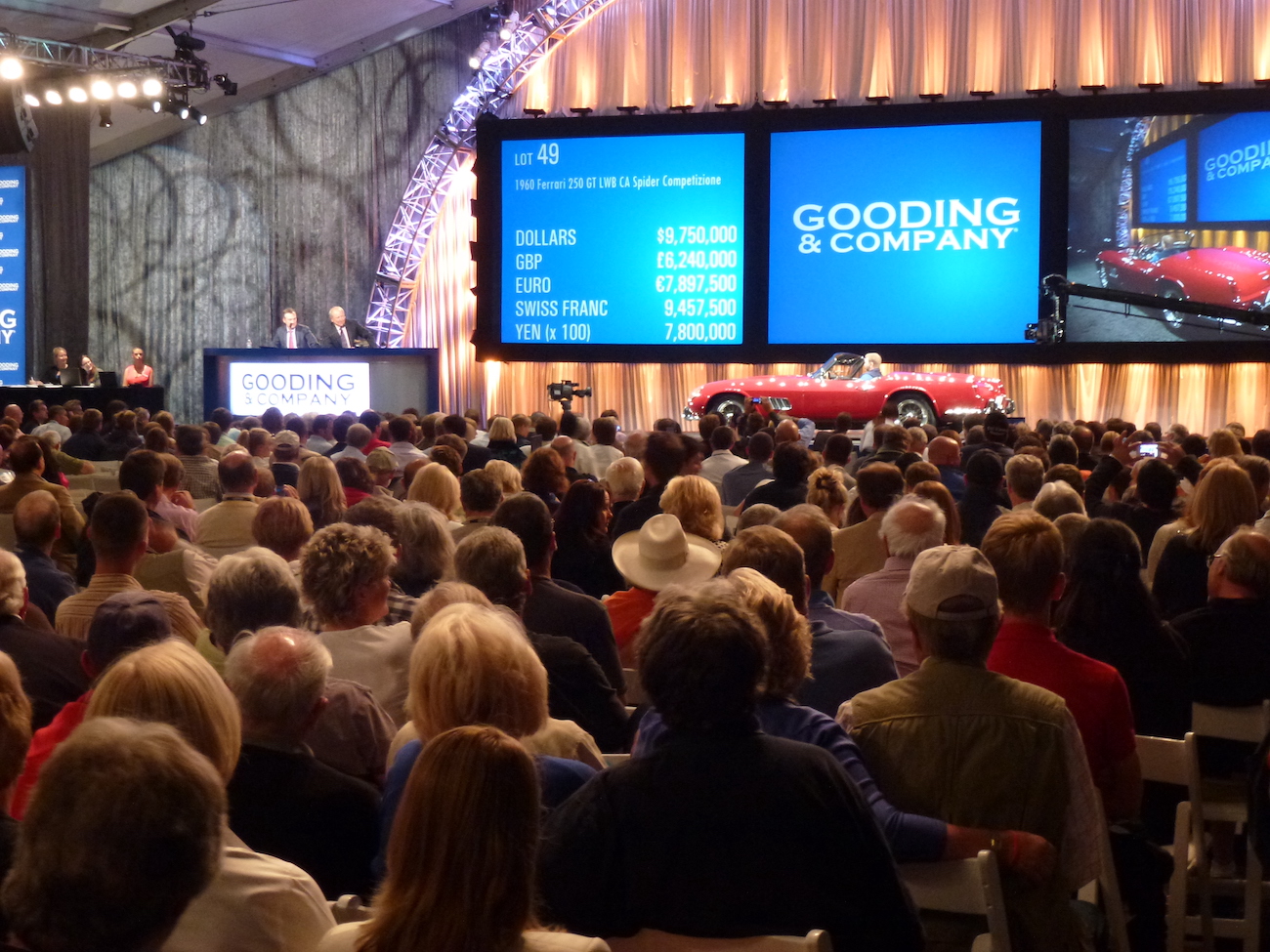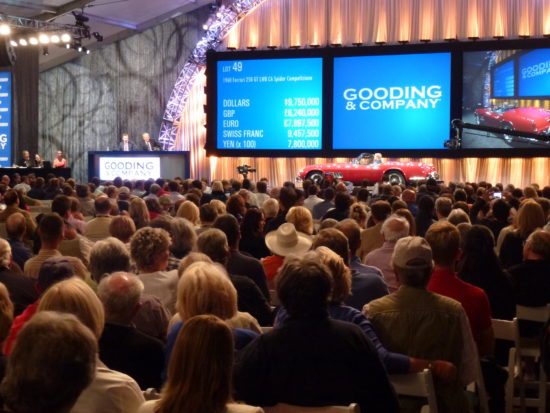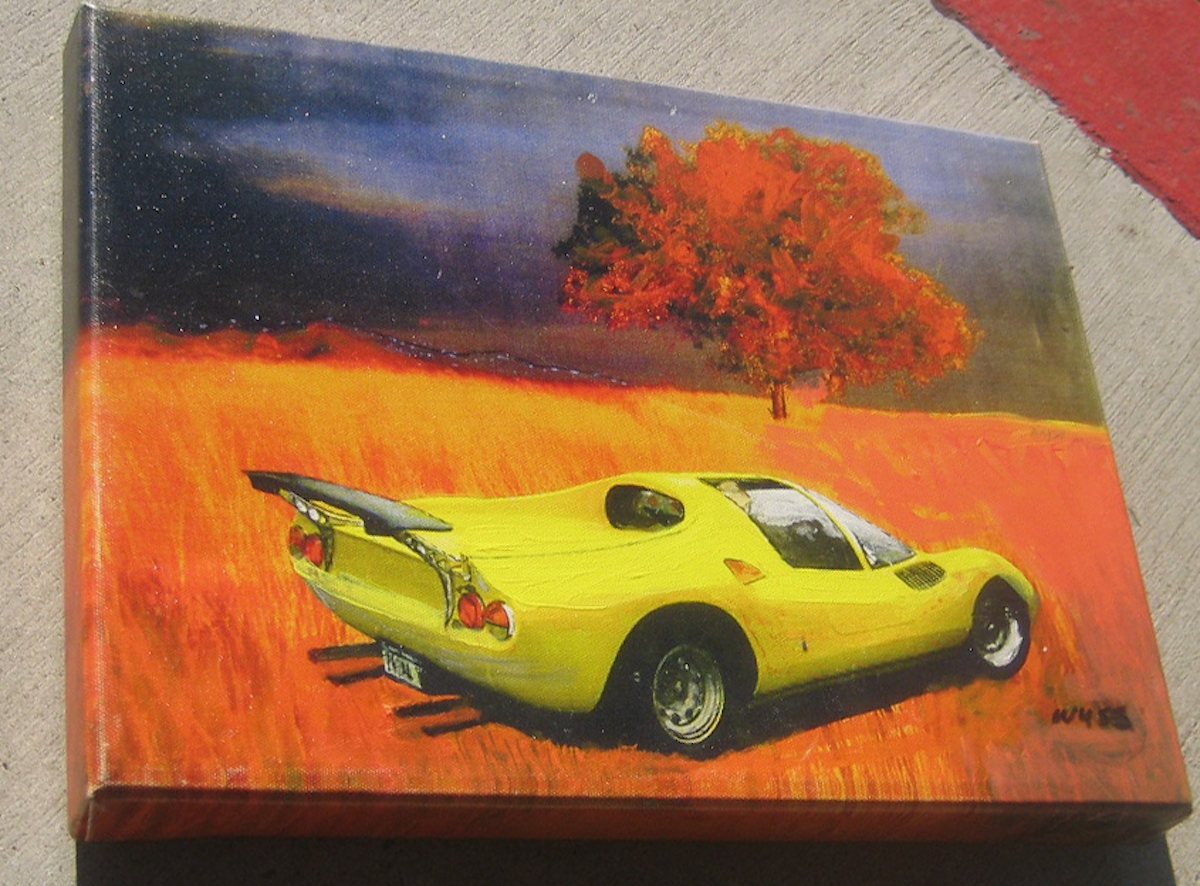by Mike Gulett –
A no reserve auction means that there is not a minimum bid required for the car to be hammered sold.
I understand why the auction company wants a no reserve auction because it guarantees that the car will sell (assuming there is at least one bid). For the auction company the motivation to sell is stronger that the motivation for the highest price.
But the seller must agree to the no reserve auction and the motivation for the seller should be to achieve the highest price, right? There may be some cases where the seller just wants the car sold at almost any price, like if the car is a junk heap or a stalled project taking up space and the seller just wants it gone. I get that.
We all see many cars for auction at no reserve that are valuable, desirable cars – yet the seller is willing to take the risk and let it go at any hammer price. The conventional wisdom is that a no reserve auction generates more interest and gets the bidders so excited that they bid up the price beyond what the seller was expecting. How often does this really happen?
It seems to me that no reserve auctions attract bargain hunters, which is not consistent with achieving the highest price. The no reserve auction creating a higher price may be just a myth created and perpetuated by auction companies.
The auction companies are so motivated for a no reserve that they will at times share some of their fees with the seller to help entice a no reserve listing or in the case of a live auction they work on the seller during the auction to get them to remove the reserve.
I have watched many auctions on TV, such as the Mecum Auctions, and most of the time, in my memory, when the reserve is lifted during the auction the car hammers for the current bid, which means there was no bidding frenzy that drove up the price after the reserve was lifted. Many times on TV the camera and microphone pick up Frank Mecum trying to persuade the seller to remove the reserve at the current bid. He will at times promise a minimum price to the seller which may include a reduction or elimination of the seller’s fee and maybe a kick back of some of the fee from the buyer.
Let’s look at the economics of an auction for say a $200,000 car. For the in-person auctions here in the US the auction commissions are typically 5% for the seller and 10% for the buyer (they can be higher in Europe and may be higher in the US for some auction companies). A $200,000 hammer price generates $30,000 in commissions to the auction company under normal circumstances and nets the seller $190,000 (after the $10,000 seller fee) with the buyer paying $20,000 in commissions.
An Example
The auction company can use the total commission, or a portion, to motivate the seller to sell at no reserve or to remove the reserve during an auction. If the minimum wanted by the seller is $200,000 the reserve would be set above that to cover the seller’s fee. But a hammer price of $190,000 (below the reserve) could still result in the seller netting $200,000 (after his $9,500 fee is forgiven and he receives $10,000 of the buyer’s fee). The seller would have to agree to lift the reserve. The auction company would still receive $9,000. This may be the best deal if $190,000 is the maximum bid achievable that day. After all the car is at the auction, all the work has been done by the auction company and a smaller fee is better than no fee. But a no reserve, or lower reserve, would have resulted in the full fee to the auction company and a lower net price to the seller.
The economics of the on-line auction site, Bring a Trailer, are quite different. The seller’s commission is zero and the buyer’s commission is 5% of the hammer price to a maximum of $5,000. This commission amount does not seem like enough to compensate the seller for taking the risk of a no reserve auction and the auction company is not likely to give all of the commission to the seller anyway. Yet there are many no reserve car auctions on Bring a Trailer.
Why do some sellers put up their desirable, and sometimes very valuable, car for auction at no reserve?
Let us know what you think in the Comments.




I like to look at the auction results at the back of Hemmings Motor News, Classic Cars, Car & Classic Cars, Classic Motorsports, and Sports & Classic Cars. The writers use pithy, sarcastic remarks and their expertise to try to figure out why cars did not meet the reserve, went way over the reserve, and how the selling price or best offer compare to current average market value. I would never buy a car at auction, as there seem to be cheaper ways to buy classic cars, with the added protection of a prior inspection by an expert and/or mechanic. I feel the spectacle of the auction tends to inflate values, perceived, real, or imaginary. Glenn in Brooklyn, NY.
I agree with Mike’s “No Reserve Thesis”; better for auction house UNLESS Seller really wants car “Sold”.